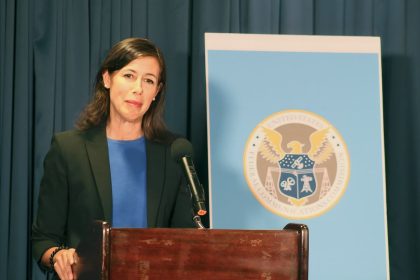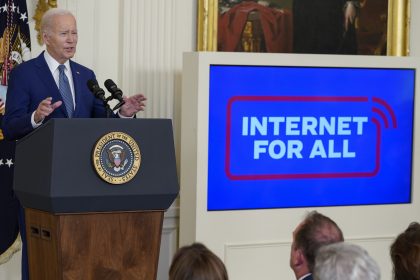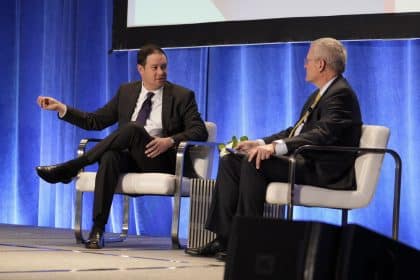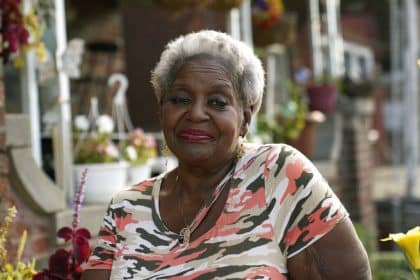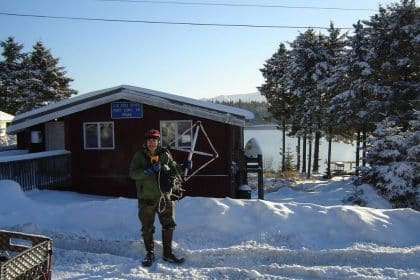‘Big Dollars Yet to Come’ as Louisiana First to Get BEAD Planning Money
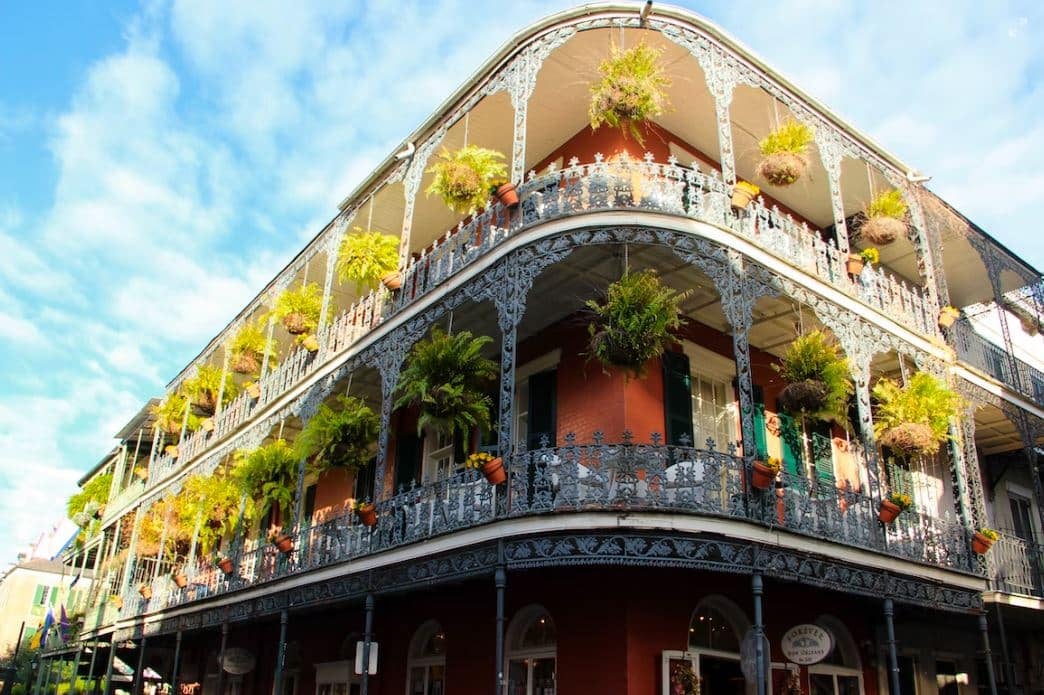
ALEXANDRIA, La. — Government officials are starting to dole out the largest pot of money to build broadband infrastructure — the $48 billion of the Broadband Equity, Access, and Deployment Program overseen by the Department of Commerce’s National Telecommunications and Information Administration.
Louisiana is the first state in the country to get part of the money, nearly $3 million, for planning and digital equity programs, said Andy Berke, the U.S. special representative for Broadband.
“We understand how much Louisiana is prioritizing this. Because of those resiliency issues, because of those rural issues, because of the urban issues, y’all are really out in front on this. And it’s symbolized by today. These are the first dollars that we have contributed as part of the bipartisan infrastructure law,” Berke said during Louisiana’s inaugural broadband summit Wednesday.
Louisiana was one of the first states to submit its application to access the Internet for All funding provided in the bipartisan infrastructure law that allocates $65 billion to building internet infrastructure and helping Americans afford internet services in their homes. Earlier this month the administration announced every state, U.S. territory and Washington, D.C., signed up for the funding.
“The Internet for All initiative is on track and on schedule,” said Secretary of Commerce Gina Raimondo in a statement.
“Over the coming weeks, every state and territory will have funding in hand as they begin to build grant-making capacity, assess their unique needs, and engage with diverse stakeholders to make sure that no one is left behind.
“My thanks go to Gov. [John Bel] Edwards and his team; Louisiana was among the first to sign onto Internet for All and to apply for funding, and I know they’re ready to get to work for the people of Louisiana.”
The commission created the timeline of planning applications and grants to be given out first over the next few months followed by the larger implementation grants given next year to allow states to determine the best way to get the internet to every person.
“When we do this, at the end of the day we will be planning not just for that connection. But also for the skills and the affordability and the devices that people need to make those connections come alive,” Berke said.
Louisiana was one of the first states to apply in 2019 when Edwards set the goal to close the state’s digital divide over the next decade. At the time he created the Broadband for Everyone in Louisiana Commission. That work and the development of the state broadband office helped Louisiana get in front of the opportunity to get the federal funds when the pandemic opened up opportunities through the American Rescue Plan Act and the bipartisan infrastructure law.
Citing his 2029 goal of closing the state’s digital divide, Edwards said, “I am more confident than ever that we will meet that goal. We will do it by organizing public-private efforts across the state in the areas of access, affordability and digital liberty. All of those are important, otherwise it is a hollow promise.”
The infusion of federal funds to build out broadband infrastructure to every Louisianan and help residents become more digitally literate will be a transformative experience, Edwards said.
Already there’s been progress with the millions of dollars the state has gotten through the American Rescue Plan’s emergency broadband funding program, he added, announcing $32 million in government spending from the remaining emergency funds.
However, “the big dollars are yet to come, and in fact, we believe Louisiana’s share of the bipartisan infrastructure [law] … will be around a billion dollars. That is a billion with a ‘B’ and we will take that and match it with private sector money. And then we will close that digital divide by 2029,” Edwards said.
He also thanked the two members of the eight-person Congressional delegation who voted for the law — Sen. Bill Cassidy, R-La., and Rep. Troy Carter, D-La. — for their help in getting money to build out Louisiana’s internet.
“This is a transformative moment,” Berke said Wednesday during the announcement. “We are aiming to do something that is on par with that rural electrification of a hundred years ago.”
Madeline can be reached at [email protected] or @ByMaddieHughes

















